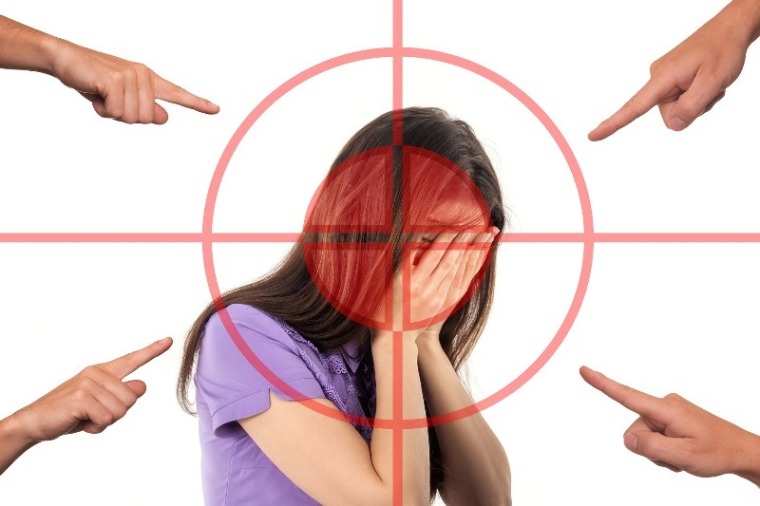
As a teacher, I hate hearing this phrase. I also have not enjoyed the 34 stitches my body has endured this year…another story for another time perhaps.
When the truth of a matter has been “exposed” by other people who no longer accept the certain behaviours of others, the cry of “snitches get stitches” becomes and begins an undercurrent of intimidation.
Students I deal with who wish to promote their cause, justify their own behaviours, consolidate their power and their willingness to want to do and continue whatever they want to do, are usually the first to pronounce this phrase.
This happens when discipline, consequences or justice is served on an unsuspecting perpetrator-
“What? How did THEY know?”
“Who “dobbed?”
“This place is full of gossips.”
“Snitches get stitches.”
There is a marked difference between a child or teenager “dobbing” or “tattling” on someone and the person who genuinely wants to stop injustice, stop someone continuing to harm themselves or others. As an individual it may be to stop the pressure, the pain and the hurt being caused to them personally.
Dobbing or tattling is usually motivated by one person taking pleasure in someone else’s suffering. This is designed to create an atmosphere at home, school or workplace of opposition and conflict. People who revel in creating this atmosphere are committed to getting others in trouble and ultimately will increase the wedge of distrust in their relationships, disrupting the harmony at home, school or a workplace.
These dobbers will often be the first to claim being “picked on” or bullied. As a father and a teacher of secondary students, they can often be the hardest to parent or teach. The more strategies you give to the parties involved (and there are many), the more restorative justice practices you employ (and this takes time) and the changes in the tone of voice you use (and mine can go from peacefully calm to frustratingly loud and grating very quickly), the less progress you feel you are making to a harmonious world.
Isaiah in the Bible tells us, “Learn to do good; seek justice, correct oppression; bring justice to the fatherless, and please the widow's cause,” (Isaiah chapter 1 verse 17).
Bringing justice to a wrongdoer is far different to dobbing on someone.
Calling out the haters
Mitch Robinson, Brisbane Lions AFL player, recently took to task people abusing him for his performance. The constant barrage of comments players can get on their ability or inability to kick a goal or handpass a ball, amounts to bullying.
Do we allow people to have to cop this, because “dobbing” is wrong?
Instead of letting the online trolls have their say, Robinson “called them out.” He “dobbed” on them. He did not let them get their way. He slammed ‘idiot’ fans harassing players on social media over betting losses. Robinson took to Twitter himself to have a crack at fans whingeing over lost multi-bets in the wake of GWS Giants captain Callan Ward sharing death threats that were posted on his Instagram page.
“It has just got to stop. If you’re getting death threats like I’ve been getting, there’s some players couldn’t handle that,” Ward said on radio station 3AW.
“Not one AFL player gives a flying **** how we cost you a $100 multi, it’s $5 bet you idiot,” Robinson wrote on Twitter. “If you’re struggling with that amount please don’t punt in the first place. Death threats & ‘hope you do your ACL next game,’ I dare say we won’t pay you out either,” Robinson articulated.
Helping and healing the hurt
I have spent time with students who have felt the same way. There are many students who fear the repercussions for speaking up, for appearing as the “dobber” and the “snitch”. At times, it is much easier to “shut up” rather than “put up” an accusation.
“There’s nothing you or anyone one can do Mr Modlin. I can’t take it anymore, but I will just keep my mouth shut, it is much easier this way.” Many give into peer pressure in the hope whatever is going on, will stop.
This leaves a student despondent, downcast, fake and for some I have encountered, suicidal, anxious and depressed. They wear a mask of happiness, laugh in the face of pain and are willing to remain a victim, robbed of their potential to shine. They allow other people to talk to them the way they want to talk, pressure them into lifestyle choices they do not want to make and reinforce the inevitable “cone of silence”, “you better not speak up” and “as long as we have each other’s backs, THEY will NEVER find out” environment.
Often these students may lie to the ones they never would lie to, their closest friends and parents, to safeguard their own reputation.
Can it change?
My experience tells me, it does not have to be this way. Surrounding these people with love and a listening ear is an amazing way to turn this around. It takes time and as a teacher AND a parent, we must take the time to become vulnerable and transparent ourselves. A culture where the “light” is promoted will often result in the “darkness” exposed.
In the Bible, the writer John eloquently recites this type of culture:
This is the verdict: Light has come into the world, but people loved darkness instead of light because their deeds were evil. Everyone who does evil hates the light, and will not come into the light for fear that their deeds will be exposed. But whoever lives by the truth comes into the light, so that it may be seen plainly that what they have done has been done in the sight of God (John chapter 3 verses 19-21).
I have seen groups of students, and even my own family, develop and cultivate this culture. It is not without pain (and a few tears), but the positive is promoted and wins.
There have been plenty of times in my teenage and adult life I have turned a blind eye to an act of injustice.
It is to my shame.
I have also stood up for the weak, the vulnerable and the hurt.
It fills me with pride and I know God is real when this occurs.
Many of my students and my sons will hear me simply say,
“OWN IT!”
“CONTROL WHAT YOU CAN CONTROL!”
My sons have had to learn hard lessons when they have committed an act of injustice either at home or at school. Many students I have counselled have often had to put their own hand up first, take responsibility for their actions, confess to their “crimes” before I even begin to deal with the pain caused to them.
Walking humbly with God, granting mercy and loving justice may actually be worth the stitches in the end.

Russell Modlin is in his 30th year as a Secondary English and Physical Education Teacher. He has taught in Mackay, Brisbane, Alice Springs and currently on the Sunshine Coast. He is married to Belinda (26 years) and they have three sons- 2 have finished High School, 1 to go!
Russell Modlin’s archive of previous article can be found atwww.pressserviceinternational.org/russell-modlin.html